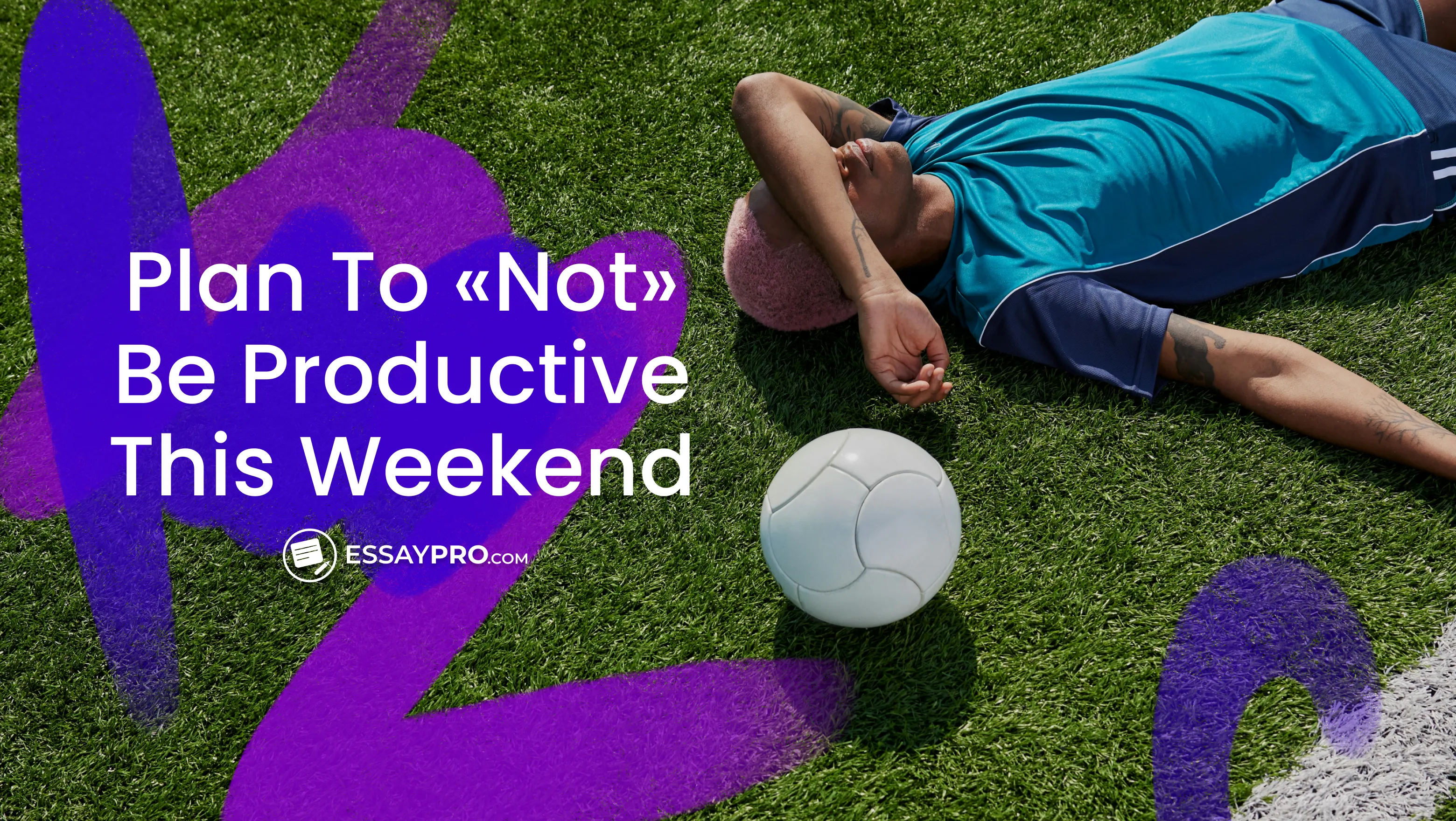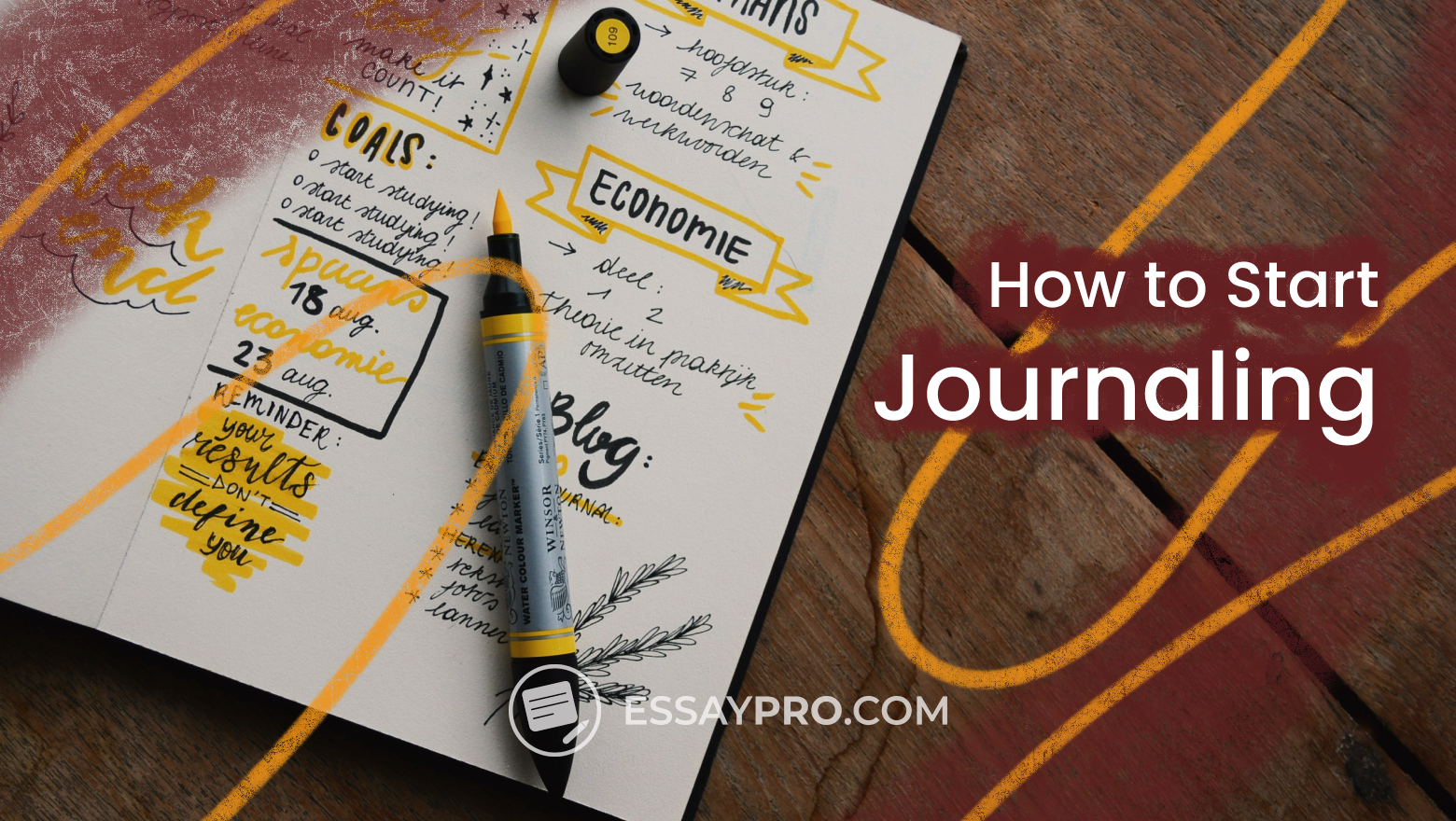By Friday night, the week feels heavy in your bones. Your brain is still ticking through half-finished to-do lists, even as your phone keeps lighting up with more. No wonder 43% of Americans in 2024 reported feeling more stressed compared to the previous year. The weekend is supposed to be an escape, yet somehow it turns into a side project for errands you can't get done because of work.
There's another way. Sometimes the smartest move is to walk away from the list entirely. That's what does it mean to not be productive in the way most people define it: no rushing, no measuring your day by how much you accomplished. Just air in your schedule.
And if you're a student staring down a deadline, nothing says you have to carry the load alone. EssayPro can handle the academic side so you can take a real break, minus the Sunday-night dread.


Why Unproductive Weekends Are a Must
This constant push to squeeze value from every hour is exhausting. People aren't machines — everyone needs pauses that allow creativity to breathe. Learning a few storytelling strategies for students can actually help you see how rest fuels imagination and clarity. Your brain needs the same recovery time your muscles do after a good workout. The real reset comes from giving yourself a full day (or better yet, two) with zero obligations lurking around the corner.
According to the University of Pennsylvania's Wharton School, weekends treated like mini-vacations send people back to work more willing and equipped to handle whatever Monday morning decides to throw in their path. Which makes the question: Is it okay to not be productive for a day? - feel almost unnecessary. The answer's there in the way you breathe afterward. Those loose, unstructured hours are the frame your overall wellbeing hangs on. Without them, the week tilts. With them, it stands.
Rest and Laziness: Are They the Same?
The thought sneaks in: if I do nothing on the weekend, am I just being lazy? The truth is in the details. Rest is an intentional choice. Laziness is avoidance. They may look similar at a glance, but when you're the one living it, the difference is obvious.
Plan to "Not" Be Productive This Weekend
If you're figuring out how to "not" be productive on weekend, you'll need more than just "don't work." Think of it the way you’d think of a business plan example — clear, intentional, and designed for a specific outcome. In this case, the outcome is doing absolutely nothing that feels like work. You need a handful of small, deliberate choices that let time stretch out in front of you, without the secret agenda to "get ahead." Here's how to give yourself that kind of weekend.

Sleep in and Rest Deeply
Skip the alarm. Let morning light, not a buzzing phone, be the thing that wakes you. Your body knows what it needs, and you might be surprised at how much better you feel when you follow its lead. If you roll over and fall back asleep until afternoon, you're doing exactly what your system has been asking for all week.
Skip All Planning Tools
The to-do list, the calendar, the schedule... hide them all. This isn't a weekend for chasing productivity. If an idea pops into your head, let it drift away instead of adding it to your list of most important tasks. There's a quiet power in not recording every impulse.
Move More
Not for the sake of burning calories or tracking steps. Just… move. Wander around the block because the air smells good. Stretch on the floor because your back feels tight. Maybe you even head out for grocery shopping just to enjoy the stroll. The aim is light movement that clears your head and sharpens your focus without turning into a workout.
Enjoy Media or Hobbies
Watch a series without checking how many episodes are left. Read a book until you lose track of time. Play, paint, or bake something for the sheer joy of it. This is the kind of free time that lets you feel fully present in your own life.
Engage in Mindful "Puttering"
Water the plants. Move a vase. Fold a shirt that's been sitting in the wrong place for days. But here's the tricky part: do all this without making it out as a mission to "get the house together." Spend time effectively, doing small, satisfying actions.
Spend Quality Time with Loved Ones
Sit at a park bench with friends and talk about nothing in particular. Grill something slowly while the family members pick at snacks. Go swimming without counting laps. Family time matters more than the activity.
Disconnect from Obligations
When a thought about work or chores sneaks in, notice it and let it leave. Don't grab it. Don't turn it over in your head. Give yourself full permission to not plan or fix. The world will still be there on Monday, so don't spoil your Saturday morning.
Allow Reflective Moments
Sit somewhere without your phone. Let your mind wander until it lands somewhere unknown. Try writing whatever comes up in a notebook, or just keep it in your head. These are the moments that ultimately lead to reduced stress. The ones that feed into your overall well-being.
Do a "Bedrotting" Day
Spend the day in bed. Keep your favorite snacks close. Wrap up in a blanket and put on that one TV show that calls for zero brain power. Let the hours progress however they want.
Try a Digital Detox
Turn the phone off. Close the laptop. The first hour feels itchy, like you've lost a limb. Then your senses sharpen. You notice how quiet your place actually is without endless social media posts. How the real weekend feels. Without screens tugging at you, those few moments feel a lot larger.
What to Avoid While "Not" Being Productive on the Weekend
When you're being not productive on the weekend, it's easy to slip into habits that undo the whole point. Watch for these:
- Turning downtime into another checklist you need to complete.
- Letting guilt push you back into chores or work.
- Overplanning rest until it feels like another workday.
- Checking messages "just to stay on top of things."
- Packing your days with so many plans that you end up drained.
- Filling every pause with scrolling instead of letting yourself breathe.
- Comparing your weekend to someone else's curated version online.
- Using the Sunday evening to cram chores into every hour and pretending it's rest.
To Wrap Things Up
Some weekends are meant to be hollowed out. No alarms. No tidy blocks of time. You notice things when you give yourself that kind of space: the way your shoulders settle when no one's asking for anything, the sudden urge to do something simply because it feels good, not because it's useful.
Of course, if you're buried in coursework, the idea of stepping away can feel like a fantasy. The essays don't stop calling just because you want to. That's where EssayPro earns its keep. You hand over the materials - messy notes, half-finished paragraphs, whatever you've got - and we turn it into something solid. Even when you need to learn how to write a college resume for the admissions committee, we've got you covered.
FAQ
Is Being Not Productive on Weekends Laziness?
No. Laziness is avoiding effort when you have the energy not to. Not being productive on the weekend is an intentional choice to recover.
Will Being Unproductive on Weekends Help You Relax?
Yes. Unstructured time lets your mind and body slow down, lowering stress levels. Without the pressure to accomplish anything, you can enjoy activities that actually recharge you.
How Long Can You Be Not Productive on the Weekend?
There are no specific times. A few hours are more than enough for some. Others need to take the entire weekend off from responsibilities. The key is to give yourself as much time as you need to feel rested.

Ana Ratishvili
Ana is a professional literary writer with a Master’s Degree in English literature. Through critical analysis and an understanding of storytelling techniques, she can craft insightful guides on how to write literary analysis essays and their structures so students can improve their writing skills.
- Working for the Weekend: Downtime and Performance. (2024, March). Wharton Executive Education. https://executiveeducation.wharton.upenn.edu/thought-leadership/wharton-at-work/2024/03/embracing-downtime-for-greater-performance/
- ADULTS - The American Institute of Stress. (2024, June 14). The American Institute of Stress. https://www.stress.org/who-gets-stressed/adults/
- Hustle culture can wait. Here's why it can be good to be unproductive. (n.d.). Fortune Well. https://fortune.com/well/2023/02/20/benefits-of-being-unproductive/








